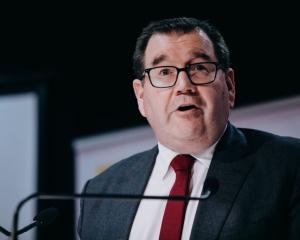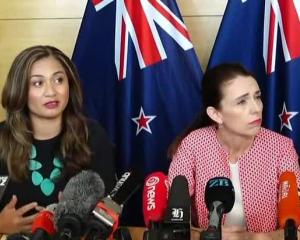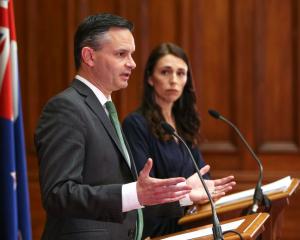
It was described by the Prime Minister as her generation’s "nuclear-free moment".
But climate change fell slightly off the national radar in the wake of Covid-19.
However, despite 2020’s necessarily altered priorities, climate change remains one of the biggest issues facing New Zealand and the world.
This electoral term there have been large protests around the country thanks to the School Strike 4 Climate movement, ushering in a wave of engaged, vocal young Kiwis.
Parties in 2017 campaigned on cleaning up waterways and making rivers swimmable again.
A raft of legislation, from the plastic bag ban to the million trees policy, has been chalked up, but critics say the Government’s measures do not go far enough.
The two most significant laws passed this term have been the Zero Carbon Act and the freshwater reforms.
The first was achieved through an act of bipartisanship, all parties bar Act New Zealand voting in favour.
The legislation includes the establishment of an independent climate change commission, zero net carbon emissions by 2050 and a 24% to 47% reduction in methane emissions by 2050.
The legislation was the result of close to a year of negotiations by Climate Change Minister James Shaw.
While it offered its support, National did say it would make several changes to the legislation if elected.
Leader Judith Collins is also not a fan of the legislation, previously stating she considered crossing the floor over then-leader Simon Bridges’ decision to support it.
Act leader David Seymour has vowed to repeal it.
The second big piece of legislation has had less widespread support.
The new freshwater regulations, passed in August, have farmers up in arms.
The legislation puts controls on farming practices such as winter grazing and feedlots and sets stricter limits on nitrogen pollution.
Federated Farmers has described the new rules as "unworkable", criticising some aspects as too rigid and highlighting the onerous and increasing burden of compliance costs.
Labour has promised at least $50million to help farmers with planning to transition to environmentally friendly practices and cope with growing compliance requirements.
The National Party initially promised the regulations would be "gone by lunchtime" if elected.
Ms Collins softened the public rhetoric on that slightly during the first leaders’ debate when she clarified a National-led government would review them.
The ban on all new irrigation would be gone because it was impractical, she said.
At a recent Taieri electorate candidates meeting, New Zealand First MP Mark Patterson said as a farmer himself, he found the regulations challenging.
"But we absolutely have to do it — we need to tidy up our waterways," he said.
Meanwhile, if elected the Green Party wants to establish a $297million fund to help farmers transition to regenerative and organic farming. and proposes to bring forward the Government’s 100% renewable energy target by five years to 2030.
Its Thriving Oceans Plan also proposes at least 30% of New Zealand’s oceans be protected by 2030, along with a 10-year moratorium on all forms of seabed mining.
The plan would cost a total of $110million over three years.
Comments
David Attenborough: A Life On Our Planet.
If the environment and the future of this planet is important to you, I suggest you watch this film before going to be polling booth.
Our planet, Attenborough says, is no longer dying, it’s being murdered. “I certainly would feel very guilty if I saw what the problems are and decided to ignore them.”
He claims the solution is "simple", but unfortunately it is one that is being ignored by our major parties.
Please vote to save the planet - the sooner we act the easier life will be in the future.













